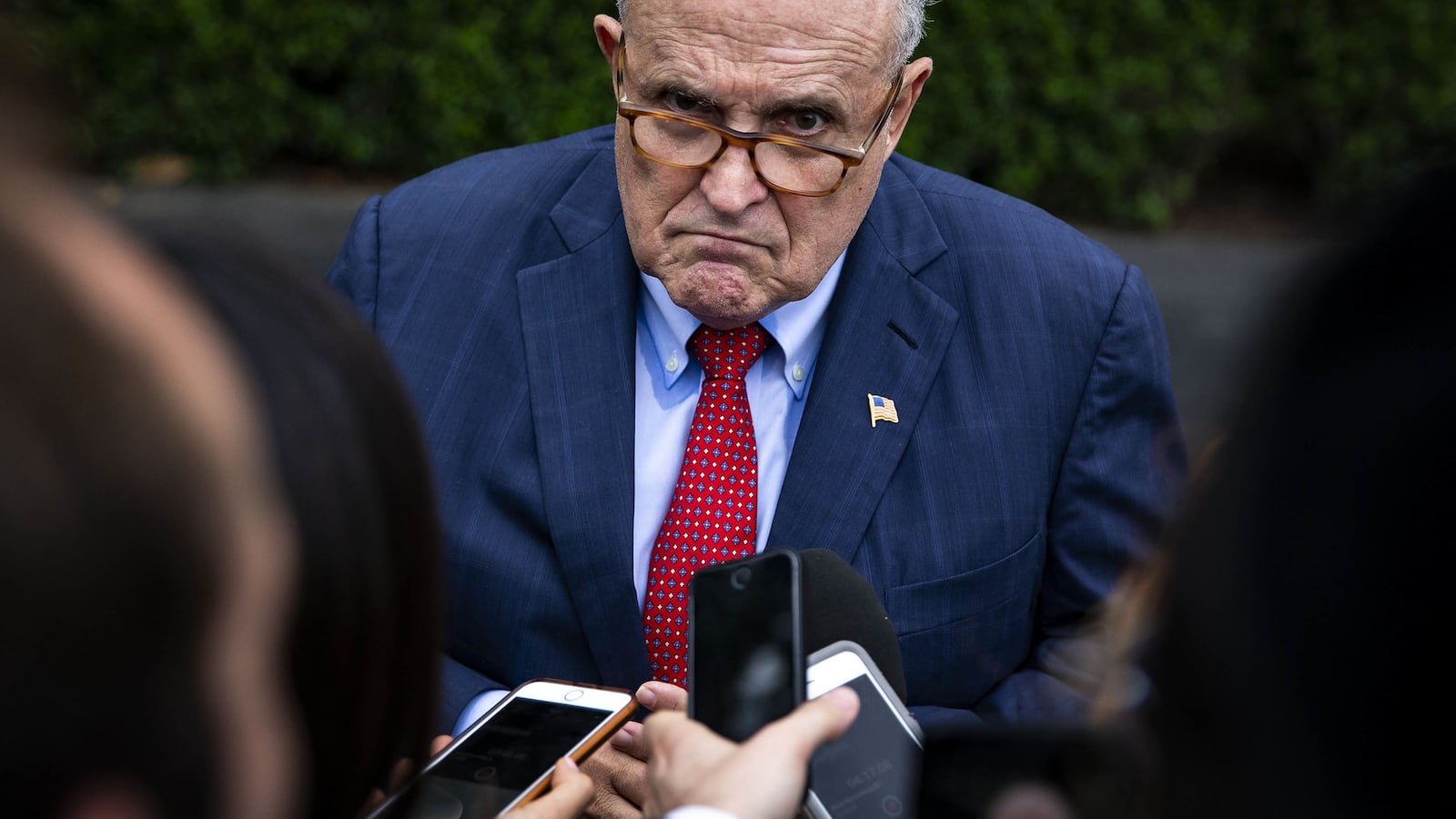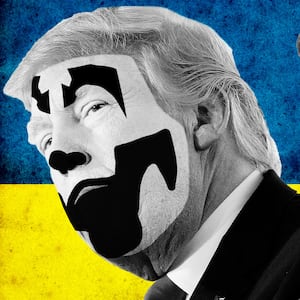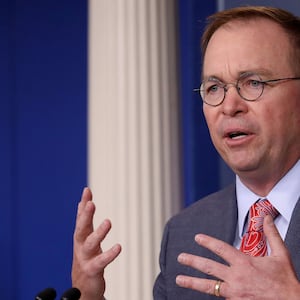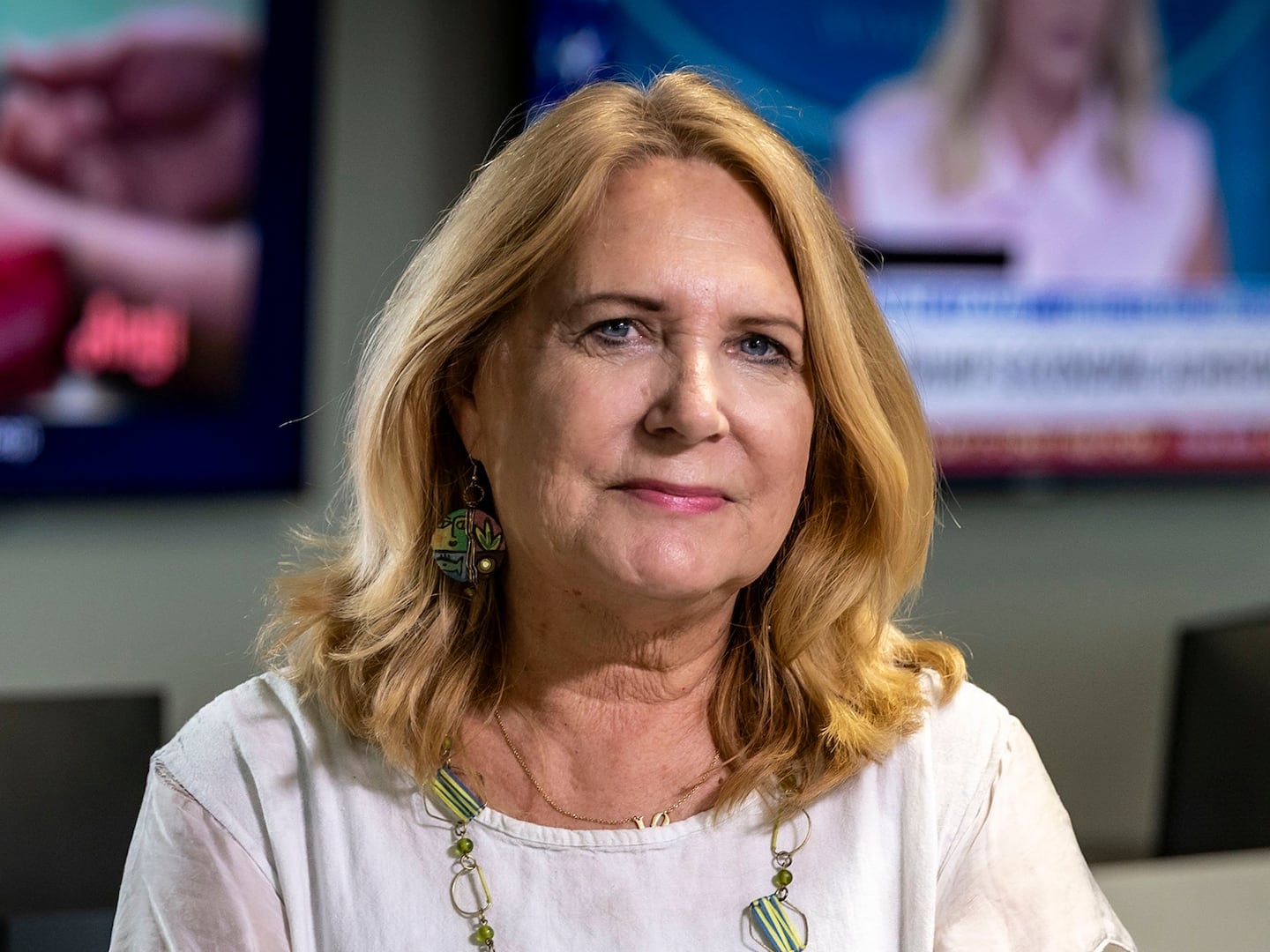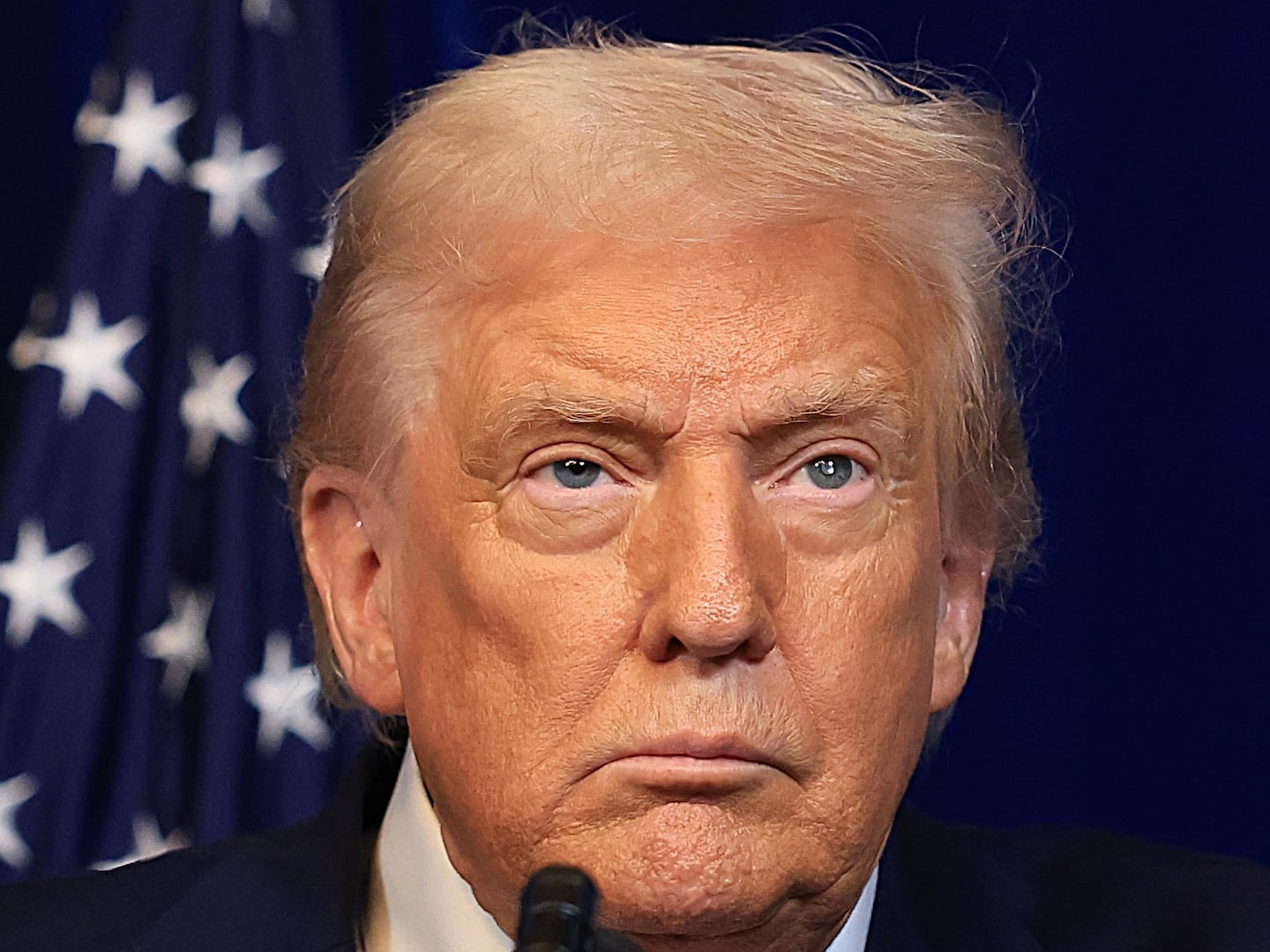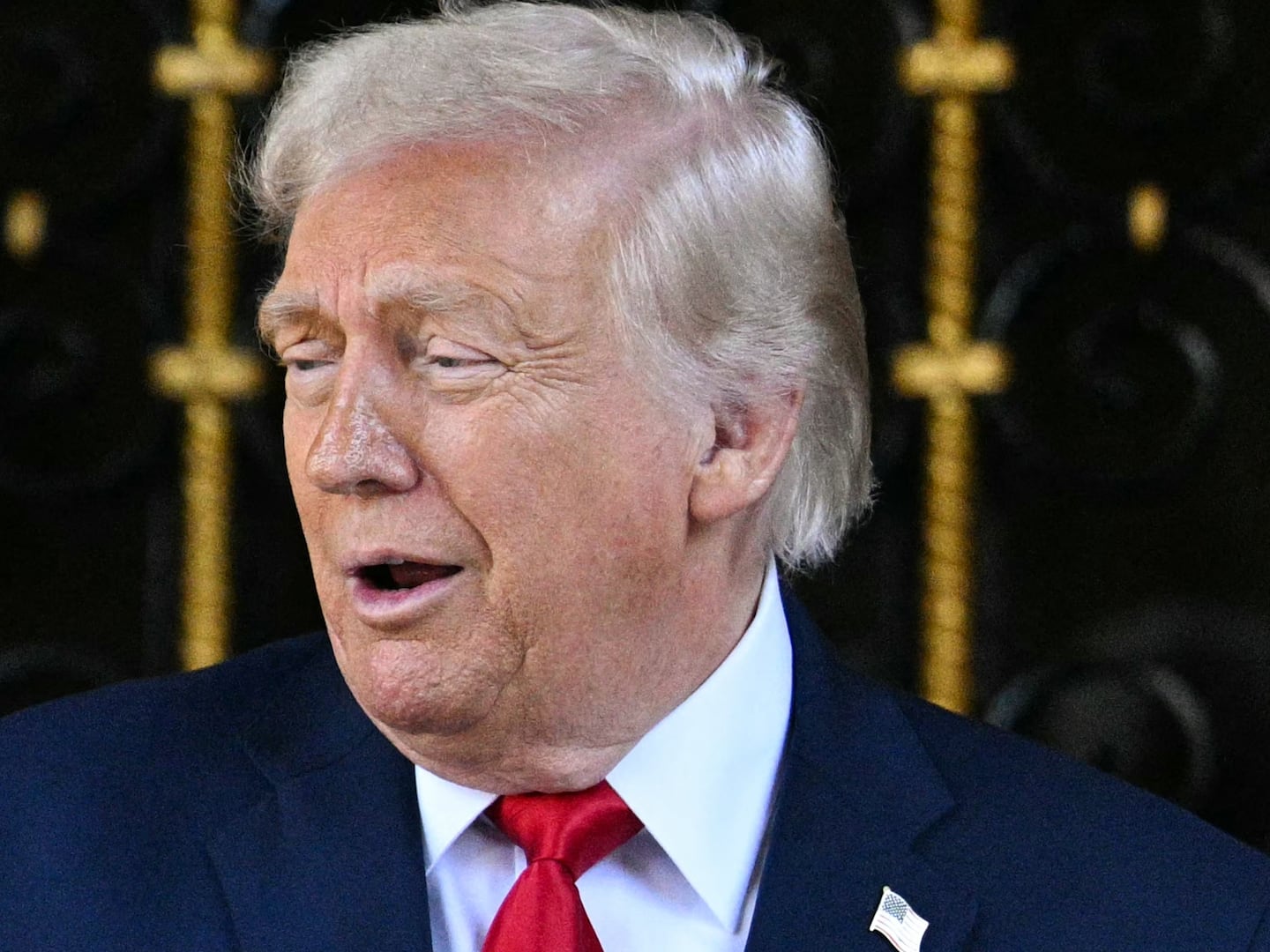When did the Trump administration’s descent into the Ukraine scandal begin? There are plenty of potential starting points, but for Fiona Hill, the Trump National Security Council’s former top Russia staffer, it all began when the axe fell on Masha Yovanovitch, the former U.S. ambassador to Ukraine and the victim of a whispering campaign started by Rudy Giuliani. When Trump fired her, it was a “kind of tipping point or turning point” for the actions that have mired the Trump administration in allegations of a quid pro quo. So how could one ambassador’s ouster pave the road to impeachment?
Welcome to Rabbit Hole.
The beginning: In testimony released on Friday, Hill said Yovanovitch’s departure was an important pivot point in the Ukraine scandal timeline “because it was after she was removed from her position that you started to see, you know, more of this activity.”
The “activity” Hill referred to involved administration officials like U.S. Ambassador to the European Union Gordon Sondland appearing to “dangle” military aid from the Trump administration in exchange for Ukraine’s investigations of the Biden family.
Most witnesses who’ve testified in the impeachment inquiry have described Yovanovitch’s firing as the regrettable loss of a talented diplomat but not necessarily the most significant event in the push for a quid pro quo with Ukraine. But Hill’s argument makes sense and it’s not hard to see why.
The void: When Giuliani helped axe Yovanovitch, he created a vacuum that allowed a hatchet man like Sondland to fill and occupy an outsized role in Ukraine policy. As Hill testified, “this is also in the period where, rather unexpectedly,” Sondland told National Security Council officials that “he had been assigned to be in charge, at least in interim fashion, of the Ukraine portfolio.”
Sondland has since emerged as one of the Trump administration officials most closely implicated in the allegation that administration officials tried to get Ukraine to dig up dirt on the Bidens in exchange for the release of U.S. military aid.
After Yovanovitch left, the embassy in Ukraine still had an experienced diplomat and career civil servant, William Taylor, to serve as the acting ambassador. But Sondland didn’t see Taylor as someone in the driver’s seat for Ukraine policy.
“We have what are called the three amigos, and the three amigos are [Energy Secretary Rick] Perry, again, Ambassador Volker and myself,” Sondland told Ukrainian state TV in July. “We've been tasked with sort of overseeing the Ukraine-U.S. relationship between our contacts at the highest levels of the U.S. government and now the highest levels of the Ukrainian government.”
That allowed Sondland, at least in his own mind, to take charge of Ukraine policy and bend it in a different direction.
The end run begins: As soon as Sondland started proclaiming himself the lead on Ukraine, Hill started to notice an end run around the National Security Council taking place. Hill and National Security Adviser John Bolton had held off on offering an invitation to Ukrainian President Volodymyr Zelensky, but then learned that Sondland had pushed to send a letter dangling the possibility of one shortly after Zelensky’s inauguration and Yovanovitch’s official departure in May.
The U.S. ultimately sent that letter but it “did not go through the normal NSC procedures,” according to Hill. Instead, she testified that “Sondland coordinated on that letter directly with the Chief of Staff [Mick Mulvaney]” and that “it did not go back through the National Security Council Executive Secretary.”
For his part, Sondland denied a role in drafting the letter and said he’d only seen it after it was sent. “I wanted the letter to be sent, but I didn't negotiate it. I just said, let's get a letter out,” he testified.
Shot across the bow: Yovanovitch’s firing left no one in doubt that Giuliani could get away with calling the shots on Ukraine and that even senior officials close to the president were powerless to stop him.
Over and over again, people in the highest levels of the Trump administration told House investigators that they and others believed Giuliani was damaging the U.S.-Ukraine relationship but that they couldn’t overrule him. Even Secretary of State Mike Pompeo could only roll his eyes.
Yovanovitch testified that Philip Reeker, the Trump administration’s top diplomat for Europe, told her that senior State Department officials were hesitant to defend her against the onslaught of Rudy’s disinformation campaign against her. At that point, Giuliani’s conspiracy narrative about Yovanovitch had already made its way into a John Solomon column in The Hill and into Trump’s retweets. In an interview with the Wall Street Journal, Giuliani also mentioned that he’d personally raised Yovanovitch with Trump and told him of the unfounded rumors that she’d trash-talked him in private.
In the face of that kind of access, the brass at the State Department told Yovanovitch that they were hesitant to jump in on her behalf—even against allegations they knew to be untrue—“because it could be undermined” by another presidential tweet.
For staffers on the National Security Council, a Rudy-led whisper campaign wasn’t just a threat to careers but personal safety as well. Fiona Hill reminded House members that she was one of a handful of NSC staff who had received death threats after alt-right pundits amplified disparaging conspiracy theories about them and their alleged disloyalty to the Trump administration. “Many people were hounded out of the National Security Council because they became frightened about their own security,” she said.
It’s little surprise then that Yovanovitch’s ouster had what Hill called a “devastating effect on the morale of all of the teams that I work with across the interagency.”

